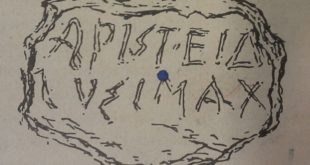The heroism of Harmodius and Aristogeiton was a myth, but Athenian democracy was not. In the two great wars of the fifth century — the Persian and the Peloponnesian — the Athenians clearly felt they had what would now be called a “way of life” which was worth fighting for. Cleisthenes, although he was of nobler blood than Solon, gave more power to the poor than Solon had done. Nearly all Athenian citizens now had a vote in the Assembly, a body which approved laws discussed in the Council of Five Hundred. The Five Hundred were elected by the citizens …
Read More »Tag Archives: Solon
A Tyrant Who Was Not Tyrannical
A tyrant’s first problem was to seize power. Peisistratus had to solve this problem three times. In 560 he came before a meeting of the Assembly wounded and bleeding, alleging that his political opponents had attacked him. Sympathisers voted him a body-guard, with the aid of which he was able to seize power, but his opponents soon forced him to take flight. His next descent on the city was made in a chariot, in which he was accompanied by a handsome woman dressed up as Athena. He alleged that his companion was in fact Athena and that she had chosen …
Read More »The Greeks Lead the Way
If you had been a citizen of the ancient Greek city of Athens on a fine spring morning in 409 B.C., you would have gathered with thousands of your fellow citizens on a hillside inside the city. You would then have listened carefully to the discussion of various matters of business, conducted by the chairman and secretary of the meeting from a platform below and facing you. You would have seen an Athenian citizen thread his way from the hillside to this platform. This was a sure sign that he had a proposal to make to the voters. The citizen …
Read More »Athens: City of Wisdom and War 700 B. C. to 500 B. C.
Of all the city-states in Greece, Athens was the most fortunate. The city’s guardian was Athena, the goddess of war and wisdom. Indeed, the Athenians did well in war and were blessed with wisdom. In the dark days, when barbaric invaders had conquered one city after another, Athens had not surrendered. Later, when Athens felt the growing pains that brought civil war and ruin to so many city-states, a series of wise men guided Athenians safely through their troubles. The right leaders always seemed to come along at the right time. It was more than good luck, ofcourse. The Athenians …
Read More »


